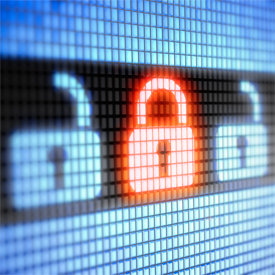
When the engineers and scientists started another attempt to increase defense during the Cold War, and eventually sent their first tests of data packets between interconnected computers in the early 1960s, probably very few could have imagined the impact that internet has on daily lives of billions of people nowadays. With the Cold War and its threats long ceased to be on the agenda, internet has gradually spread to virtually all aspects of human life – communication, services, education, news, entertainment, business, governance etc. The worldwide coverage of the global net, which, among others, has resulted in increased possibilities to play an active role in the society, has at the same time led to new potential threats of its limitations. For this reason, the need for respect and defense of freedom of speech, freedom of expression and freedom of information has been transferred to online activities as well. In this light, protection of internet freedom has been increasingly seen as one of the essential bases of democracy.
Within the scope of the project “Promoting Internet freedom in South Caucasus” IDFI has been conducting comprehensive research of various directions of internet freedom, which aims at giving better understanding of the existing conditions and challenges in Georgia. In order to achieve this goal, the report covers various areas: technical overview of the existing infrastructure, legislature and users; limits on internet content, including technical filtering and blocking of websites, self-censorship and the recent cases of internet users' rights and their violations in Georgia; overview of pluralism and online activism in Georgia are given in the final part.
The first part of the report starts with extensive overview of internet users in Georgia – number of users, frequency of usage, reasons for not using etc. Since the strategic policy-level vision of the government is essential for development of internet, the report continues with describing current infrastructure projects and challenges on Georgian internet market. This is followed by summary of legal norms regulating internet including the rights and obligations of the regulatory body.
The second part concentrates on potential and existing limitations of internet content, the role and vision of Internet Providers, regulatory body, the state and the civil society in this process, and the situation when users abstain from freely expressing their opinions online, referred to as self-censorship. This is continued with a number of recent cases when online activities have led to violence, threat, dismissal etc.
The report concludes with describing the extent of freedom of social media and the impact of internet on social activism.
Report was prepared within the framework of project Promoting Internet Freedom in South Caucasus. The project is being implemented by Stichting Free Press Unlimited and regional partner Institute for Development of Freedom of Information (IDFI).



 When the engineers and scientists started another attempt to increase defense during the Cold War, and eventually sent their first tests of data packets between interconnected computers in the early 1960s, probably very few could have imagined the impact that internet has on daily lives of billions of people nowadays. With the Cold War and its threats long ceased to be on the agenda, internet has gradually spread to virtually all aspects of human life – communication, services, education, news, entertainment, business, governance etc. The worldwide coverage of the global net, which, among others, has resulted in increased possibilities to play an active role in the society, has at the same time led to new potential threats of its limitations. For this reason, the need for respect and defense of freedom of speech, freedom of expression and freedom of information has been transferred to online activities as well. In this light, protection of internet freedom has been increasingly seen as one of the essential bases of democracy.
When the engineers and scientists started another attempt to increase defense during the Cold War, and eventually sent their first tests of data packets between interconnected computers in the early 1960s, probably very few could have imagined the impact that internet has on daily lives of billions of people nowadays. With the Cold War and its threats long ceased to be on the agenda, internet has gradually spread to virtually all aspects of human life – communication, services, education, news, entertainment, business, governance etc. The worldwide coverage of the global net, which, among others, has resulted in increased possibilities to play an active role in the society, has at the same time led to new potential threats of its limitations. For this reason, the need for respect and defense of freedom of speech, freedom of expression and freedom of information has been transferred to online activities as well. In this light, protection of internet freedom has been increasingly seen as one of the essential bases of democracy.